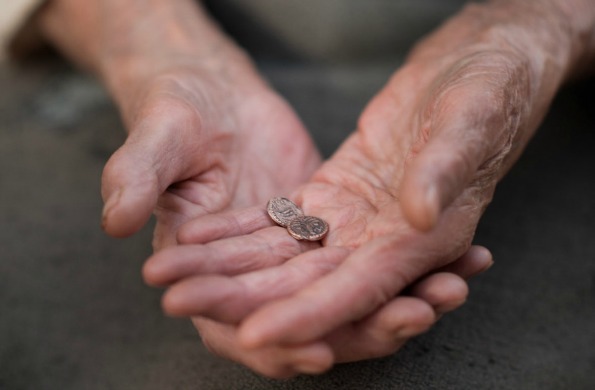Sister Cheryl A. Esplin, in April 2016 General Conference, shared a story about a BYU devotional speaker. The speaker had a young woman stand and face her on the stand. She put a mirror between her face and the young woman’s face and proceeded to carry on a conversation. It, obviously, was not a very meaningful or effective conversation. Sister Esplin said, “This was a powerful object lesson that illustrated how difficult it is to communicate with and serve others if we are too worried about ourselves and see only ourselves and our needs.” Next, the speaker put a window frame between her own face and the young woman’s face. Sister Esplin said that the audience was able to see that the “focal point and that true service requires that we focus on the needs and emotions of others.”
 At a recent Relief Society presidency meeting, we talked about one line in the Church handbook: “Ministering sisters listen so they can understand how best to serve.” This applies to brothers as well. Ministering sisters and brothers listen so they can understand how best to serve. We talked about the possibility that maybe that’s what makes service so hard—the fact that in today’s society, we don’t listen. In the age of social media, we form opinions, dig in, and don’t listen to what others think or feel. It carries over into all aspects of our lives. We don’t listen to our sisters and brothers who are struggling and have needs we can fill. We don’t listen to our bishop when he says there is a calling that we can fill. We don’t listen to our spouse who tells us he or she is stressed to the max. We don’t listen to our children when they are struggling with an issue in school. My children’s kindergarten teacher, Mrs. Robinson, used to say, “Get your ears out of your pockets.”
At a recent Relief Society presidency meeting, we talked about one line in the Church handbook: “Ministering sisters listen so they can understand how best to serve.” This applies to brothers as well. Ministering sisters and brothers listen so they can understand how best to serve. We talked about the possibility that maybe that’s what makes service so hard—the fact that in today’s society, we don’t listen. In the age of social media, we form opinions, dig in, and don’t listen to what others think or feel. It carries over into all aspects of our lives. We don’t listen to our sisters and brothers who are struggling and have needs we can fill. We don’t listen to our bishop when he says there is a calling that we can fill. We don’t listen to our spouse who tells us he or she is stressed to the max. We don’t listen to our children when they are struggling with an issue in school. My children’s kindergarten teacher, Mrs. Robinson, used to say, “Get your ears out of your pockets.”
Sister Esplin talked about being the Savior’s hands, which is a concept that I’ve heard a lot. I understand from this that the Savior has asked us to serve others as He served while He was on the earth. However, because of the sacred nature of the Savior’s hands and the torture they endured, I prefer to think about serving as Christ’s little helpers. I used to play a game when I was a little girl. I called it playing fairy. I was the little fairy who dusted someone’s bedroom, or made someone’s bed. Mom used to call me her little helper. As an adult, I want to be the Savior’s little helper.
Being the Savior’s little helper means asking ourselves these questions:
- What does God want me to do today?
- What does He want me to do for the rest of my time on earth?
- What is my assignment?
“Selfless service projects are people-to-people projects. They are face-to-face, eye-to-eye, voice-to-ear, heart-to-heart, spirit-to-spirit, and hand-in-hand, people-to-people projects. … Selflessness is righteousness. It embraces the true spirit of companionship. It is the very essence of friendship. It is the portrayer of true love and oneness in humanity. Its reward is the freeing of the soul, a nearness to divinity, a worthiness for the companionship of the Spirit. Every requirement that God’s plan for our salvation places upon us is based on the giving of one’s self.
The only way under the heavens whereby a person can be sanctified is in selfless service” (Elder William R. Bradford, “Selfless Service,” Oct. 1987 General Conference).
We are sanctified as we serve.
My grandfather used to say, “Take a little and leave a little.” Pa would take us camping out in the middle of nowhere. We took the beauty of God’s creations. We left a little, too. We raked pine needles on the paths, or lined paths with rocks—and we always carried out more trash than we packed in.
My husband and I were married under a big pine tree in the back of the cabin that Pa built. It was the middle of winter, and the cabin was all closed up for the winter. The cabin was just rough wood. The beams were old transcontinental telegraph poles Pa buried in his backyard for years until he was ready to build the cabin. When my uncle replaced the carpet in a building he owned, he brought a little piece of the old carpet to the cabin. There was decomposed granite all around the cabin, and granite isn’t very good for vacuum cleaners. I knew that the cabin needed a new vacuum cleaner. When we got married, my husband and I each had a vacuum, so we took the best one to our little apartment, and we took the other one to our wedding to leave at the cabin.
 There was snow on the ground, so we couldn’t drive in. We had to park on the road and walk in. My soon-to-be husband grabbed the vacuum and I wrapped the hose to the vacuum around my neck and carried the attachments up the hill where the bishop was waiting in the cold to marry us. My aunt Billie saw me coming to my wedding with the vacuum cleaner hose draped around my dress like a shawl and came running down the hill to take it from me. I just said to her, “Take a little and leave a little, Billie.” We were taking our wedding, and it wasn’t too much to ask that we leave an old vacuum cleaner. I knew that Pa was looking down from heaven with a twinkle in his eye. Pa taught us to serve the best way he knew how.
There was snow on the ground, so we couldn’t drive in. We had to park on the road and walk in. My soon-to-be husband grabbed the vacuum and I wrapped the hose to the vacuum around my neck and carried the attachments up the hill where the bishop was waiting in the cold to marry us. My aunt Billie saw me coming to my wedding with the vacuum cleaner hose draped around my dress like a shawl and came running down the hill to take it from me. I just said to her, “Take a little and leave a little, Billie.” We were taking our wedding, and it wasn’t too much to ask that we leave an old vacuum cleaner. I knew that Pa was looking down from heaven with a twinkle in his eye. Pa taught us to serve the best way he knew how.
In an old article I wrote on a different site, I told a story about Jake. Jake moved more people in and out of the ward than I can count. If there was a service project, he was the first one to arrive and the last one to leave. There’s a story told about a clogged toilet at a wedding reception. Everyone stood around the men’s room wondering what to do. Jake took off his suit coat, rolled up his sleeves, and went to work solving the problem. He gained respect in more than a few eyes that day.
I asked Jake once if he ever spent time studying his patriarchal blessing, and he admitted to me that it had been many years since he had read it. He went looking for it, and we read it together. It’s no wonder he never spent much time reading it, because Jake had totally embodied his whole patriarchal blessing by being a humble servant in the kingdom of God. His whole blessing was about service—something he does every single day without even thinking about it.
Jake’s daughter told me once that the perfect Church calling for him would be ward compassionate service leader. I laughed, but she’s absolutely correct.
Jake is not his real name, and I’m married to him.
To read more of Tudie’s articles, click here.
“Today there are some who would have us believe our search for relevance can be satisfied only by obtaining position and power. Yet, thankfully, there are many who are uninfluenced by this perspective. They find relevance in seeking to be truly good and without guile. I have found them in all walks of life and in many faith traditions. And I find them in large numbers among the truly converted followers of Christ.
I honor those who selflessly serve each week in wards and branches around the world by going above and beyond in fulfilling callings. But callings come and go. Even more impressive to me are the many who without formal callings find ways to consistently serve and lift others. One brother shows up early for church to set up chairs and stays after to straighten up the chapel. One sister purposely selects a seat near a blind sister in her ward not only so she can greet her but also so she can sing the hymns loudly enough that the blind sister can hear the words and sing along. If you look closely in your ward or branch, you will find examples like these. There are always members who seem to know who needs help and when to offer it” (Elder Michael T. Ringwood, “Truly Good and without Guile,” Apr. 2015 General Conference).
We are getting older, and the hardest conversation my husband and I have had to date about the aging process came the day a new family moved into our ward. They needed help unpacking the moving truck, and my husband and I went to help. My husband was dying to get up in the truck and start unloading boxes, but he used his head (probably because I was there) and let people hand him boxes to take into the house. As I recall, there were some issues with stairs, an uneven sidewalk, and possibly some tree roots in the sidewalk near the truck. It wasn’t long before he needed to rest. He was totally disgusted with himself. I took him aside and told him that even if he had only been able to move one single box off that truck, it was service. Sometimes service looks like the widow’s mite.
Tudie Rose is a mother of four and grandmother of ten in Sacramento, California. You can find her on Twitter as @TudieRose. She blogs as Tudie Rose at http://potrackrose.wordpress.com. She has written articles for Familius. You will find a Tudie Rose essay in Lessons from My Parents, Michele Robbins, Familius 2013, at http://www.familius.com/lessons-from-my-parents.







